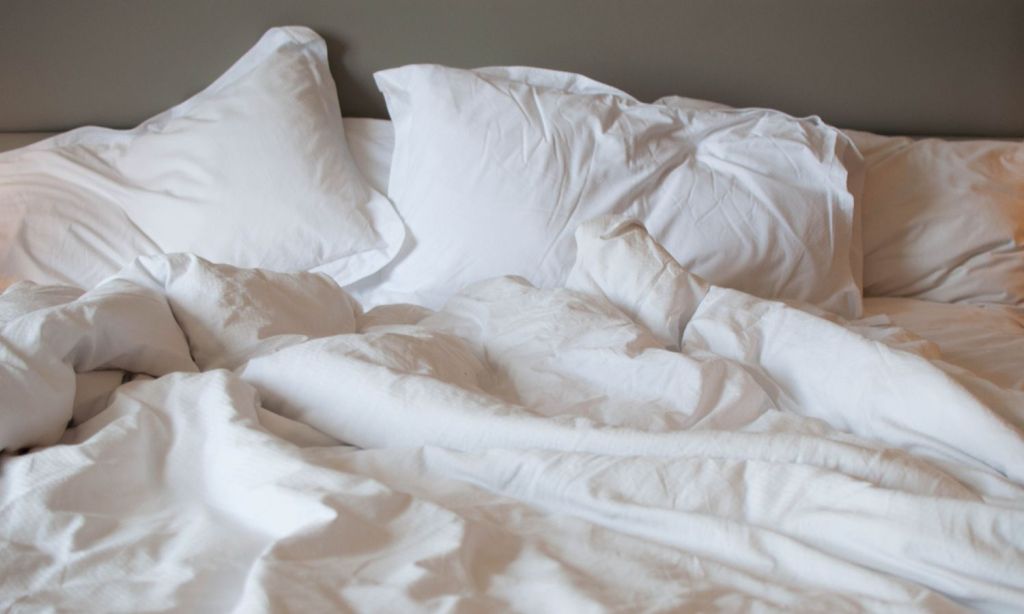Would you check-in to a nice hotel just to… sleep? It’s a trend that’s taking off in the US and UK, and now here in Australia, with the opening of several hotels solely or in part dedicated to ensuring their guests get the best quality sleep.
In the US, the Lotte New York Palace Hotel launched an Ultimate Sleep Suite, which it describes as a “restful oasis devoted to promoting the ultimate night’s sleep”.
Meanwhile, the Park Hyatt New York opened its own version, called the Bryte Restorative Sleep Suite, which features sleep-related books, sleep-enhancing amenities and a smart king bed. Backed by sleep science and powered by AI, the bed helps you fall asleep more quickly and stay asleep longer, by dynamically adjusting to relieve pressure points and control your body temperature throughout various sleep stages.
View this post on Instagram
Rosewood Hotels and Resorts also opened a collection of retreats, called the Alchemy of Sleep. Running January to March 2022, the experiences were designed to provide guests with the tools they needed to learn to slow down and to establish lasting sleep hygiene habits.
Related: A Michelin Star Ramen Bar and 7 Other Very Cool New Things to Do in Tokyo
Related: Take a Peek at Dubai’s Atlantis The Royal Hotel, Where You Can Go Clubbing in the Clouds
Six Senses launched its sleep-dedicated wellness program in 2017, and it’s now available at 14 resorts, including in Fiji and Greece, though the program differs depending on the local wellness experts. Among other things, it promises to improve your sleep pattern, restore energy level and help you to feel better equipped to face daily challenges.
Over in the UK, London’s first sleep-centric hotel, Zedwell Hotel, opened in Piccadilly Circus in 2020. Rooms are completely soundproof and don’t have any electronics or even a TV, with the idea being that they could distract from your sleep. Their cocoon rooms also are deliberately not equipped with windows.
View this post on Instagram
Here in Australia, the Langham launched a Sleep Matters by Chuan program this past World Sleep Day in March, with a turndown kit that includes ear plugs, an eye mask, herbal tea and sleep tip cards.
On a Sleep Matters menu, guests can order sleep-optimising items like a yoga mat for pre-sleep stretching, a weighted blanket and a white noise machine. Select Langhams will also stock rooms with essential oils and lavender bath products for a restful soak before bedtime.
Not quite as luxurious, but in a similar vein, an Adelaide mum-of-two is hoping to launch an app called MyRnR, dedicated to letting people get some sleep. It would work similarly to an Airbnb, but instead of guests booking host places for nights would let them book for a few hours at a time so they can get some much-needed shut-eye. The app is targeted specifically at new parents, and hosts of the places listed can set their own rates.
So, why the boom? Well, while sleep tourism was around before the pandemic, it’s clear our prioritising wellbeing during those lockdown periods at home has led to more of a demand for the travel industry to concentrate on it too.
Dr. Rebecca Robbins, a sleep researcher and co-author of the book Sleep for Success! pointed out that ironically, the hotel industry was once mainly focused on the hospitality elements of a hotel stay that detracted from sleep.
“People often associate travel with decadent meals, extending their bed times, the attractions and the things you do while you’re traveling, really almost at the cost of sleep,” she told CNN Travel.
“Now, I think there’s just been a huge seismic shift in our collective awareness and prioritisation on wellness and wellbeing.”
Read more stories from The Latch and subscribe to our email newsletter.







